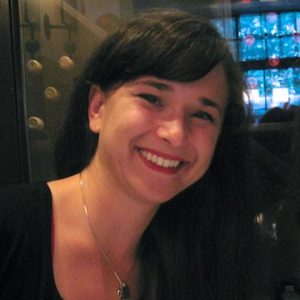Name: Julia Nussbacher
Hometown: San Francisco Bay Area, California
Hobbies: I spend most of my non-lab time doing science outreach, cooking or baking new things (and then eating them), reading high fantasy, listening to podcasts about random things, and lifting super heavy things up and down over and over.
What do you study? If you think of DNA like the blueprint for the cell, i study how the cell reads these blueprints. The DNA/blueprints live in the nucleus of the cell where they are protected from damage, so copies are made (RNA) and sent to different parts of the cell to actually make the structures (proteins) designed in the blueprint. I try to understand how these RNA copies are made, transported, modified, and mutated (damaged) to make healthy structures (proteins) or diseased structures.
Why is it important? Many diseases, particularly ones that affect the brain (for example Alzheimer’s and ALS) are caused by improper creation, transport, or following of these RNAs (blueprint copies). Disease can also occur when proteins that are involved in manipulation of the RNAs have errors or mutations. Understanding how the RNAs are processed is critical to understanding what goes wrong in diseases that are caused when this process goes awry.
What do you like about being a scientist? My favorite thing about being a scientist is getting to learn every day. No two days are the same; I’m always trying a new experiment, or a new approach for analysis. I get to talk to really smart and interesting people, work with my hands and super powerful computers, and expand upon our knowledge of how the human body works!

